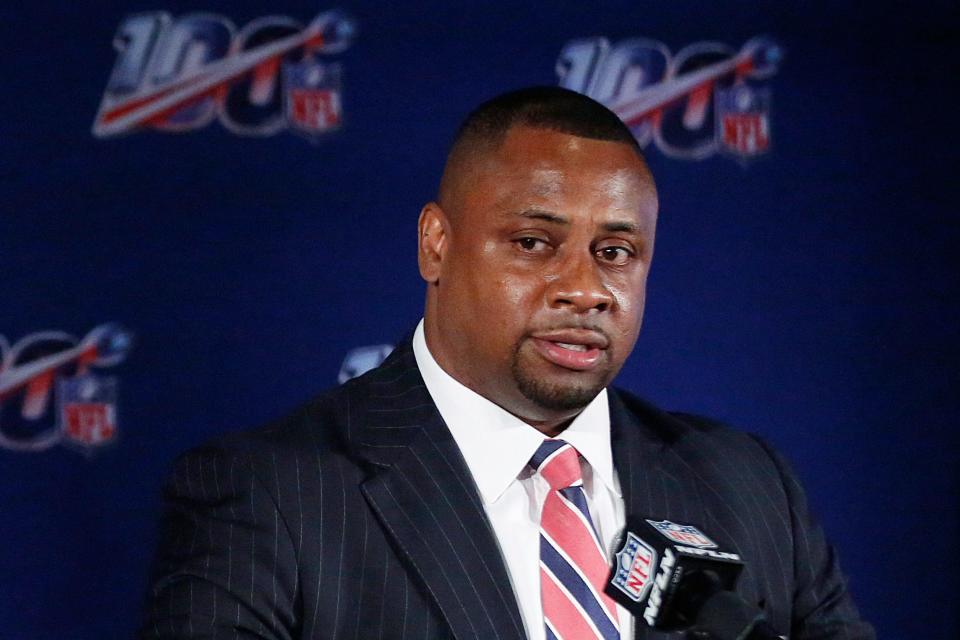'Didn't look the part': The reasons Black coaches don't get NFL head coaching jobs

NFL executive vice president of football operations Troy Vincent carries a list that he would rather not.
On it are reasons some of the NFL's 32 teams have given him and the league office for not hiring Black candidates.
"Biases are showing up before the (coach) even begins the interview," Vincent told USA TODAY Sports. "This is consistent over the last 15 to 20 years but, in particular, over the last few years."
For decades, Black coaches privately acknowledged the explanations teams would offer. Vincent and the NFL are now saying the quiet part aloud.
According to the league, some of the excuses teams have used as to why they have passed over otherwise-qualified Black coaches include:
Never called plays
Too many friends listed on potential coaching staff
No previous game-clock management
Unsure of their ability to motivate veteran players
Didn't interview well
Lacked the necessary experience to lead
Didn't look the part
Seemed nervous throughout the interview process
Job is different than what it was previously
The last point is an example of the ever-moving goalposts for the qualifications required of non-white coaches, Vincent said.
Vincent directly refuted some of the explanations teams have offered, including the one about clock management.
Among the Black coaches passed over in recent hiring cycles for at least some of these reasons, according to Vincent, are Kansas City Chiefs offensive coordinator Eric Bieniemy, Tampa Bay Buccaneers offensive coordinator Byron Leftwich, Buccaneers head coach Todd Bowles and Los Angeles Rams defensive coordinator Raheem Morris.
"Nobody can tell me that these men here, any combination you want, that they 'don't interview well,' that they 'lack experience,' that they 'didn't look a part' or they 'seemed nervous in the process,' " Vincent said. "It's hard for me and many others to accept that. ... We just felt like this is the best that we have. These men, at minimum, should be presented an opportunity to lead a football franchise at the professional level."
The league currently has six non-white head coaches: three Black, one biracial, one Hispanic and one of Lebanese descent. The Pittsburgh Steelers (63%) and Texans (60%) – each with a Black head coach in Mike Tomlin and Smith, respectively – boast the highest percentage of non-white coaches on staff, according to a USA TODAY Sports data analysis.
And the pipeline of non-white coaching talent exists: of the 722 on-field coaches in the NFL this season, 314 (or 43.5%) identify as non-white, which is believed to be the largest figure, by count, in league history.
"We’re trying to eliminate that bias, promote trust, develop skills and present opportunities," Vincent said.

Countless initiatives and programs are in place, and the NFL has created draft-pick incentives to promote diversity at all levels of each organization.
"But we don’t hire," Vincent said.
That is the reality not just inside professional football, but everywhere, Hall of Fame safety Ed Reed said on The Ringer's "Slow News Day" podcast.
"It’s no secret how far this goes back on why African-American coaches are being treated that way. It’s because of the way African-American people are treated. This is bigger than just coaches," said Reed, who also noted Black coaches are given less leeway if they are hired. "You don’t have African-Americans that are put into power to make those decisions or even hire each other."
Vincent called the league's 32 clubs "the finest institutions in the world." They have overcome every challenge on their way to building the most important league and sport in this country, he said.
Except one.
"Why we’re sitting here, in 2022, giving them practices on things to look for and the interview process is troubling," Vincent said.
"Because these questions aren’t really for us, they’re for someone else to answer."
Follow Chris Bumbaca on Twitter @BOOMbaca.
This article originally appeared on USA TODAY: Black NFL coaches aren't getting head coach jobs. Here are reasons why
